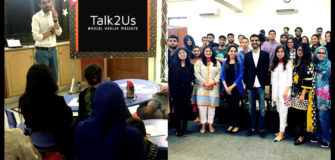What is Empathy and Why is it Important in Ageing and Dementia?
Share
Societies attitude to ageing and to dementia have increasingly been shown to affect older people’s sense of confidence, social engagement and positive or negative identity.
“We know from the literature and the lived experience that ageing and age-related things are largely stigmatised”
According to Dr Natasha Ginnivan, a postdoctoral fellow of the University of NSW and emerging expert in ageing, “one way to combat the stigma of aging is to cultivate empathy”.
As a means to achieve this, Ginnivan co-created an empathy web-based app which people can engage. The Course of Empathy was part of larger project under the supervision of Laureate Fellow, Professor Jill Bennett, director of The Big Anxiety to raise awareness about the lived experience of mental health challenges and other health issues, that are sometimes met with stigma by society. The Course of Empathy App is a resource that sits alongside the Empathy Clinic at the UNSW Art Gallery.
“We are trying to use different examples to improve our ability to empathise, particularly when groups of people in society might describe as being stigmatised”.
“We know from the literature and the lived experience that aging and age-related things can be stigmatised, so we are trying to cultivate empathy in place of stigma. We are trying to build our empathy skills through education and demystify some of the things that people think dementia is by speaking more to people who are living with it”.
What is empathy and why is it important in aging and dementia?
Dr Ginnivan explains “there are many answers to that; from the neuroscientific perspective, I think that humans have evolved into very social creatures, where caring for one another has become a part of our survival, a part of our very biology. We have evolved to care for others and that it is an evolutionary, but then there is the social perspective too that we can cultivate empathy, and studies are showing that we have empathy, and we can learn to cultivate it too. “
Ginnivan reconfirms, “we are all aging and we may or may not get dementia and so to equip ourselves with an understanding is not only serving others in whatever stage of life you are in it is equipping you for any stage of life that you will start going through when you get older. This is with or without a diagnosis of dementia”.
It will be a benefit to you to know what it is like to get older.
Luisa Capezio, Director at Phillips Wealth Partners, accredited aged care professional™
"Striving for positive change, challenging the status quo and delivering the best result for the people that I represent are three areas from which I draw my motivation" - Luisa Capezio
Specialising in Aged Care Navigation and Placement, Luisa has over twenty years experience in the healthcare sector across multiple therapeutic areas. Tertiary education includes science, marketing and a masters of public health.
Luisa has a particular interest and specialisation in aged care models of care and dementia. Empowering older Australian’s with the right information to make independent choices is important to Luisa. She also enjoys speaking on a broad array of topics in this sector.










